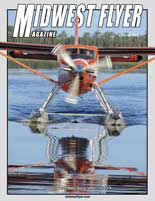by Greg Reigel
A mechanic, who holds an Inspection Authorization (IA) certificate, recently asked me this question.
Since the FAA issues the certificate, and the certificate itself doesn’t contain any geographic limitations, the mechanic thought the answer to the question should be “anywhere in the U.S.” Well, the mechanic was right, sort of.
To answer the question, we need to look at 14 C.F.R. 65.95. Section C provides: If the holder of an inspection authorization changes his fixed base of operation, he may not exercise the privileges of the authorization until he has notified the FAA Flight Standards District Office or International Field Office for the area in which the new base is located, in writing, of the change.
This language doesn’t prevent an IA from exercising privileges in any geographic location. However, if an IA wants to work somewhere other than his or her fixed base of operation, the IA needs to provide notice to the FAA office responsible for that new area. Although some may argue that this requirement is simply the FAA over-controlling where an IA can work, it does make some sense when you consider that once an IA receives his or her IA Certificate, he or she applies for and is issued renewals of the certificate through the local FSDO, rather than through Oklahoma City.
What happens if an IA fails to provide the required notice? Unfortunately, the sanction guidance contained in Order 2150.3B: FAA Compliance and Enforcement Program doesn’t provide a proposed sanction addressing this specific type of violation. However, depending upon the circumstances, I wouldn’t be surprised to see a sanction of suspension from 15 days up to indefinitely, pending compliance.
Thus, although it may seem like a nuisance and an improper exercise of authority, IAs need to be aware of this requirement and ensure that they provide the appropriate notification if they plan on working outside their home base of operation. Better to give the notice than to have to deal with an enforcement action.
EDITOR’S NOTE: Greg Reigel is an attorney with Reigel Law Firm, Ltd., a law firm located in Hopkins, Minnesota, which represents clients in aviation and business law matters (www.aerolegalservices.com, 952-238-1060).
Email your questions or comments to: greigel@aerolegalservices.com.










